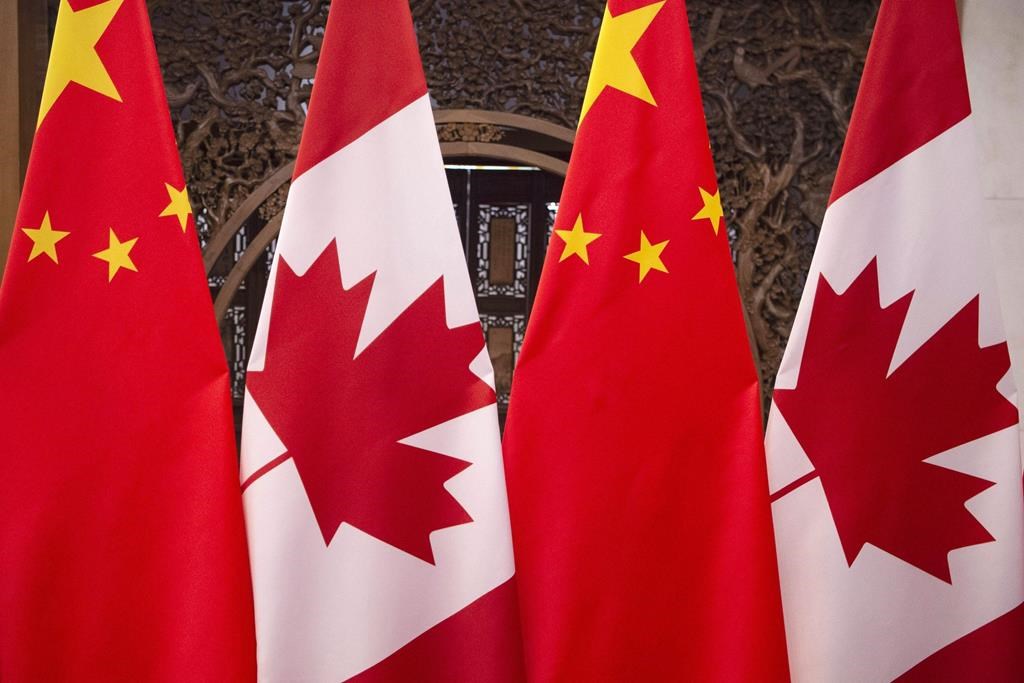Ottawa: China Executes Four Canadians for Drug-Related Offenses
China executed four Canadian citizens on drug charges, despite Ottawa’s calls for clemency. The move has intensified tensions between Canada and China, drawing condemnation from Canadian officials and human rights groups. Beijing defended the executions, citing strict anti-drug laws. The incident adds to ongoing diplomatic strains between the two nations.

In a development that has further strained diplomatic relations between Canada and China, Ottawa announced that four Canadian citizens were executed in China earlier this year on drug-related charges. The executions have drawn sharp criticism from Canadian officials and human rights organizations, highlighting ongoing tensions between the two nations.
Details of the Executions
Canadian Foreign Minister Mélanie Joly confirmed the executions during a press briefing, expressing profound disappointment and condemning China's use of the death penalty. The identities of the executed individuals have not been disclosed at the request of their families. Joly emphasized that both she and former Prime Minister Justin Trudeau had actively sought clemency for these individuals, underscoring Canada's longstanding opposition to capital punishment.
China's Legal Stance
Responding to the international outcry, China's Foreign Ministry defended the executions, stating that the individuals were convicted of serious drug offenses and that the legal proceedings were conducted in strict accordance with Chinese law. The ministry reiterated China's zero-tolerance policy toward drug-related crimes, asserting that such offenses pose significant harm to society. China also emphasized that it does not recognize dual citizenship, treating the individuals solely as Chinese nationals.
Diplomatic Repercussions
The executions have exacerbated already fragile relations between Canada and China. Tensions escalated notably in 2018 following Canada's arrest of Huawei executive Meng Wanzhou on a U.S. extradition request, which was met with China's detention of two Canadians, Michael Kovrig and Michael Spavor, on espionage charges. Although both Kovrig and Spavor were released in 2021, the diplomatic relationship has remained strained, with recent events adding further complexity.
International and Domestic Responses
Human rights organizations, including Amnesty International, have condemned the executions, calling them a stark reminder of China's extensive use of the death penalty. Amnesty International estimates that China carries out thousands of executions annually, though exact figures remain undisclosed as they are considered state secrets. The organization has urged the international community to intensify diplomatic efforts to address human rights concerns in China.
Domestically, the Canadian government faces pressure to reassess its diplomatic strategy with China. Lawmakers and public figures have called for a more robust stance on human rights issues, advocating for policies that balance economic interests with ethical considerations. The recent executions have reignited debates over Canada's foreign policy approach toward nations with contentious human rights records.
Legal Context and Precedents
China's legal system imposes severe penalties for drug-related offenses, including the death penalty. The country's stringent laws are part of a broader campaign to combat drug trafficking and abuse. While executions of foreign nationals are relatively rare, there have been notable cases in the past, such as the execution of British citizen Akmal Shaikh in 2009 for drug smuggling, despite international pleas for clemency.
Future Implications
The executions underscore the complexities inherent in international relations, particularly when legal and ethical standards diverge. For Canada, the incident may prompt a reevaluation of consular support mechanisms for citizens abroad and a reassessment of its engagement strategy with China. Globally, the case highlights the ongoing debate over the death penalty and the challenges of advocating for human rights within differing legal frameworks.
As the international community continues to navigate these intricate issues, the recent executions serve as a somber reminder of the profound consequences that can arise when legal systems and diplomatic efforts collide.
Sources:
- https://www.bbc.com/news/articles/c204ywyl4kvo
- https://globalnation.inquirer.net/269195/china-says-acted-in-accordance-with-the-law-after-4-canadians-executed
- https://www.aljazeera.com/news/2025/3/20/china-executes-4-dual-canadian-citizens-despite-ottawas-plea-for-clemency
- https://www.washingtonpost.com/world/2025/03/20/canada-china-executions-drugs-death-penalty/
What's Your Reaction?












/https://tf-cmsv2-smithsonianmag-media.s3.amazonaws.com/filer_public/54/66/546650fa-26a4-40fd-8d6d-5a7a04540f81/rosetta2.png)
:max_bytes(150000):strip_icc():focal(999x0:1001x2)/robert-prevost-050825-1-39395418ab494da5a3a700c9478e66c8.jpg)















































format(webp))
format(webp))


























